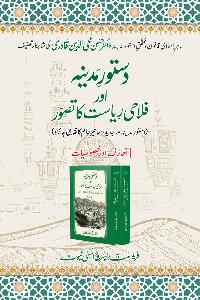Conclusion
In conclusion, the Constitution of Medina is a landmark document in the history of human civilization. It is the first written constitution in the world, and it sets forth the principles of justice, equality, and freedom that are essential for the development of just and equitable societies.
The Constitution of Medina is not only a historic document, but also a living document that can provide guidance for the development of modern societies. It is a model to build a society based on the principles of Islam, which are the principles of peace, justice, compassion and social integration.
The Constitution of Medina holds a significant place in history as it not only established the first Islamic state but also marked a remarkable milestone in the development of global civilization and culture. This constitution laid down the principles for safeguarding the rights of all legal classes and provided a framework for governing various affairs. It aimed to ensure the preservation of individual rights and the well-being of different social classes, including the minority population residing in Medina. Moreover, it shed light on the true essence of an Islamic welfare state. The Constitution of Medina serves as a testament to the progressive and inclusive vision of Islam, emphasizing the importance of justice, equality, and social harmony.
In modern developed countries, the Constitution of the United States is widely recognized as the shortest and most exemplary constitution, containing approximately 7,000 words. On the other hand, the Constitution of Medina, which was granted by the Prophet Muhammad ﷺ 1,445 years ago, consists of a mere 63 articles with approximately 750 words. This constitution stands out as a well-documented, concise, comprehensive, original, and complete text, surpassing contemporary constitutions in its scope and content. It guarantees the protection of the rights of all legal classes, outlines the roles and responsibilities of various branches of government, safeguards the rights of individuals and social classes, including minority groups, and provides a clear framework for the establishment of an Islamic welfare state.
During the ten-year period of leadership of Prophet Muhammad ﷺ in the state of Medina, there was a remarkable development in constitutional politics. It is a source of pride for the Muslim community that they were pioneers in the practice of constitution-making, even before the concept of written constitutions became prevalent in Western countries during the 18th century.
It is truly remarkable and praiseworthy that there exists a comprehensive book or research material on this subject. These works are consolidated and relevant, providing valuable insights. One notable work in this regard is Meethaq Madina: An Analytical and Constitutional Study by Shaykh-ul-Islam Dr Muhammad Tahir-ul-Qadri. In this book, Shaykh-ul-Islam presented the clauses of the Constitution of Medina into 63 articles for the first time, making it easily accessible and organized for those interested in studying it from a legal perspective.
Dr Hassan Mohi-ud-Din Qadri, the Chairman of the Supreme Council of Minhaj-ul-Quran International, makes another noteworthy contribution in the form of his publication titled Constitution of Medina and the Concept of the Welfare State (A Comparative Analysis of the Constitution of Medina and Contemporary Western Constitutions). This extensive work, comprised of two substantial volumes, offers a comprehensive overview as described in the preceding paragraphs.
The author of this book, Dr Hassan Mohi-ud-Din Qadri, has done a valuable service by providing an unprecedented, comprehensive and in-depth study of the Constitution of Medina. His book is a must-read for anyone who is interested in learning more about this important document and its relevance to the modern world. The author’s arguments are persuasive and well-supported by evidence from the Quran, Sunna, and history. He provides a clear and concise overview of the Constitution of Medina, and he highlights the key principles that are essential for the development of just and equitable societies.
Overall, this book is an important contribution to the study of the Constitution of Medina and its relevance to the modern world. It is a valuable resource for anyone who is interested in learning more about this important document.
Copyrights © 2024 Minhaj-ul-Quran International. All rights reserved




![The Constitution of Medina & The Concept of the Welfare State [Introduction and Salient Features]](https://minhajbooks.com/images-books/thumbnails200/The-Constitution-of-Medina-amp-The-Concept-of-the-Welfare-State-Introduction-and-Salient-Features-Dr-Hassan-Qadri_722.jpg)